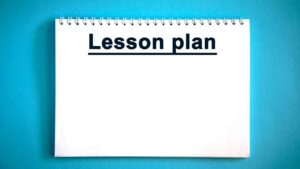by Tristan Cotterill
Robert McCall is an ex-CIA operative who now seeks to balance the scales of justice by going after those that prey on the weak and powerless. Played by Denzel Washington in the July 2018 film, Equalizer 2, is not a movie that, on the surface at least, is an obvious source of lessons for teachers, certainly not a class lesson, as it has far too much profanity, and even more blood and death, but, if we delve deeper we can see that there are plenty of useful life lessons from which teachers can indeed benefit.
So here are seven lessons for teachers courtesy of Robert McCall.
1. Great Teachers aren’t afraid of confronting wrongs
Throughout the movie, and its prequel, Robert McCall is a man on a mission. He seeks out the perpetrators. When he finds someone doing wrong, he exacts vengeance upon them. While at times it could be nice to enact swift vengeance on our students (pause while I inaudibly shout at Mike to sit down and be quiet for the ten thousandth time), it is not what I am endorsing.
Think instead of those perpetrators as a metaphor for the root causes of our students’ must common mistakes.Very often mistakes are easily corrected but sometimes a repeat mistake is a sign of a foundational problem or misunderstanding (or because Mike has yet to do any work in a semester).
As educators we cannot be afraid of confronting these major problems, problems that will only amplify the symptoms the longer they go on.
2. Every teacher wears multiple hats
>Now if you have had any additional training that uses a colour coded hat metaphor I apologise, as I have seen too many. That is not to stop me giving you another one.
Throughout the movie Robert McCall’s character is constantly changing, from dressing as a Muslim man on a pilgrimage to Turkey, being a Lyft Driver, to being someone who helps young men in his community. Robert McCall is never static, always shifting his roles.
The problems that arise from being static can be applied to nearly every level of education; far too many to address here but your role as a teacher is much like Robert’s. You’re not in a single position. You’re constantly shifting and changing what you’re doing. Be willing to shift as you teach. Go where you’re needed and do what you need to do.
3. You can turn around
Having taken on being a Lyft Driver as his day to day job, you see throughout the movie a diverse range of experiences Robert McCall has from the passengers that have hailed him. One particular passenger portrays a powerful scene as a recovering alcoholic who is visibly distraught and can be heard reciting the serenity prayer. The passenger is praying and telling himself he doesn’t need a drink, convincing himself he can say no. Eventually he does just that, and he asks Robert to turn around, and to take him back home.
If someone who is so clearly heading down a dark path can turn around, you can too. So much research in recent years has shown an almost epidemic in poor mental health of teachers. These same teachers often say their sense of responsibility for their students outweighs their self-care. However,you don’t have to keep going down the path you’re on. There’s a choice you can make. You can choose to continue or you can turn around and take more care of yourself. Choose the right path.
4. You have to do the grunt work
This is not a lesson, I suspect, any worthwhile teacher needs, i.e. that you must be prepared to work hard. Be prepared to do things you don’t want to do. And be ready to be a teacher.
Early on in the movie, the apartment complex Robert resides in is vandalised by a bunch of thugs. They destroy the garden and spray paint the brick walls. Robert knows that no one will fix it including the building maintenance, so he takes it upon himself
The role of a teacher isn’t to sit at your desk and bark orders. You will have to roll up your sleeves and get your hands dirty. You will have to clean up messes and do things others are unwilling to do (For example teach Mike).
This lesson is further reinforced when Robert tries to imbue his wisdom onto a young man, Miles, played by Ashton Sanders. Miles has dreams of being an artist, yet he is slowly but surely moving towards a life of crime. With Miles openly admitting he doesn’t always attend his classes, Robert challenges him. One particular line stands out to me
It takes talent to make money. It takes brains to keep money.
This line really does epitomise the debate many students have as to whether higher education is for them.
5. Admit it when you don’t know what to do
Without giving too much away, one of Roberts friends, Susan, passes away, leaving her husband. With an investigation into her death, her husband doesn’t know what else can be done and he isn’t afraid to admit it.
Teaching brings you to places where you don’t know what to do next. You may have thought you had it all figured out only to have the rug pulled out from underneath you.
Don’t be afraid to admit you don’t know what to do next. Share your concerns with colleagues. Let them know your struggles.
They’ll help you through those difficult times.
6. You got a choice. You got talent…
Carrying on with the story of Miles. Miles had a choice either to use his talents or to become another statistic by continuing to hang out with gang members. Steve Maraboli, radio commentator and motivator once said:
“Cemeteries are full of unfulfilled dreams… countless echoes of ‘could have’ and ‘should have’… countless books unwritten… countless songs unsung… I want to live my life in such a way that when my body is laid to rest, it will be a well needed rest from a life well lived, a song well sung, a book well written, opportunities well explored, and a love well expressed.”
Talent is too often wasted because people were scared to try. They were afraid they would be rejected. Or they felt they weren’t good enough. Your talent is worthless in the grave. Don’t horde your talent and skills. Use them. Hone them. Being a teacher, there is no better way to let the world have them.
7. Remind people of the way
I like to try and end everything I write on a positive, so, I have left this lesson till last. As Robert unravelled the mystery, he led the men after him to his former home. There, he posted pictures of Susan. He did this to remind them of the why. He was doing this for Susan.
You have to constantly remind your students of the why. They need to know the reason behind what they’re doing.
By reminding them and making the why clear, they are able to focus on the important work they’re doing. Help them understand the why behind your work.





